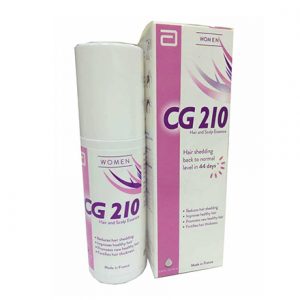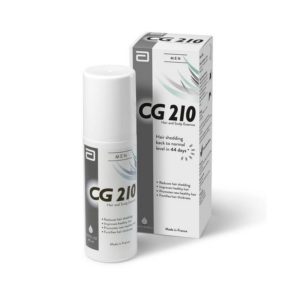If you search online for “natural hair loss treatments,” a long list of tonics, creams, and supplements appears. But do they work? Paradi Mirmirani, MD, a dermatologist for Permanente Medical Group in Vallejo, Calif., spends a lot of time steering patients away from products recommended by their friends and family members. Most of those products are costly and have little to no benefit.
“Most natural hair treatments are bunk,” Mirmirani says. Though few natural treatments have been well-studied for hair loss, there are a handful that may help you hold onto your mane longer if it’s starting to disappear.
Table of Contents
Why do we have hair loss?
You may be seeing more hair in your brush than normal for several reasons. Vitamin deficiencies, thyroid problems, and menopause are all culprits of hair loss. If a medical condition is causing your hair loss, it may need to be treated. “If something needs our attention, you fix that and the hair takes care of itself,” says Molly Roberts, MD, president of the American Holistic Medical Association.
Sometimes medication is needed, Roberts says, but she often tries more general methods first — such as the following:
Nutrition
Sally Kravich, CNHP, a nutritionist and author, finds in her practice that “vanity is a good way to inspire people (to eat better) – we all want shiny eyes and radiant hair and skin.”
She encourages her patients to get nutrients and minerals from the food they eat. Unfortunately, many people don’t have the best diets.
Protein is important to strengthen hair and promote growth. The recommended daily amount is about two to three 3-ounce servings of meat or a combination of four to five servings of dairy and beans.
Kravich tells patients dealing with hair loss to include nuts and seeds, eggs, and fish in their diets. All are important sources of omega-3 fatty acids, which help lower inflammation and create a healthier scalp.
It’s best to avoid a rut; eat a variety of foods every day.
Kravich recommends eating six to 10 servings of various vegetables daily, two to four fruits, and an assortment of grains and legumes and lean meat products.
Roberts says there are some nutrients that may be helpful for hair:
- Iron: Anemia can cause hair loss. But iron supplements are only recommended if you’ve tested positive for iron-deficiency anemia, according to the Cleveland Clinic.
- Zinc and biotin: These supplements are assumed to help with hair growth because people with metabolic disorders lacking them can have thin or brittle hair and nails, Mirmirani says. She doesn’t recommend supplements, but she also doesn’t discourage their use.
- Saw palmetto is sometimes touted for hair growth, but there isn’t enough evidence to back that up, according to the National Institutes of Health.
Know Your Supplements
If you’re going to use supplements with your hair in mind, tell your doctor before you start taking them. That way, your doctor can watch out for any possible side effects, including interactions with other drugs you’re taking. Even though supplements don’t require a prescription, they’re still something your doctor needs to know about so that they can have a complete picture of everything you’re taking.
Love Your Hair
Rubber bands, dyes, perms, straightening irons, and curling wands can be hard on your hair. If your hair is thinning, you don’t want it to break as well. Be gentle with your hair — don’t overdo brushing or washing, Roberts says. Some patients quit styling their hair altogether, Mirmirani says. This can lead to thin, unstyled hair, which makes them less satisfied with it.
Her advice:
- Use scalp colouring products to minimise the contrast between your hair and scalp if it’s beginning to show through.
- Try hair extensions to boost volume.
- Keep your hair cut short so it doesn’t hang and appear thinner.
- Try parting your hair on the side. That takes the focus off the crown, where hair often thins.
- Use body-boosting hair products, which can make hair look thicker.
Manage Stress
Losing your hair can be stressful. And stress (physical and emotional) can sometimes increase hair loss. “Before you start to worry about it, go to a doctor to see if you should worry about it,” Roberts says. More hair in your brush may not be the beginning of the end for your tresses. Roberts says there are times when some extra hair loss is normal — for women, that includes during menopause and after pregnancy.
“Hair loss is an emotional thing for a lot of people,” she says. “Clearing out that stress may help them hold onto it longer.”
Need more help?
One of the comprehensive and balanced supplements you can buy. Vita-Lea® is specially formulated to provide you with 28 essential vitamins and critical minerals need by adults.
ABBOTT CG210 HAIR & SCALP ESSENCE (WOMEN)
In a published scalp biopsy trial performed on subjects with androgenetic alopecia, daily application of CG 210™ has enabled restoring back, in 3 months, an anti-apoptotic protein towards the level found in non alopecic subjects.
ABBOTT CG210 Hair & Scalp Essence For Men
For men and women who wish to reduce hair shedding, increase hair thickness, improve healthy hair and promote new healthy hair.
























